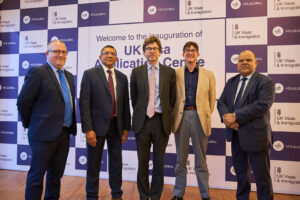The Minister of State for Environment, Dr Iziaq-Adekunle Salako, says the challenges of climate change and energy transition require innovative solutions and a firm commitment to ethical governance.
Salako said this in Abuja on Tuesday at the first International anti-corruption and climate change conference, organised by Human and Environmental Development Agenda (HEDA Resource Centre), an NGO.
The theme of the conference is “National stakeholders’ engagement for accountability and transparency in addressing climate change, energy transition and oil extraction licencing for sustainable development”.
The Minister was represented by Dr Iniobong Abiola-Awe, Director, Department of Climate Change at the ministry.
He described climate change as the defining issue of the time, and the single greatest threat to a sustainable future, planet and security.
According to the him, transparency and accountability are the bedrock of sustainable development, and through collaborative efforts, we can have a more just and sustainable future to overcome these challenges.
He said that climate change was not just an environmental challenge but a developmental quagmire, described as the everest of all problems.
He also described it as the thorniest challenge facing humankind and an urgent threat to lives, health, food, biodiversity and livelihood.
“As challenging and acute as the climate change crisis is, it cannot enjoy exclusive access to funding and attention and has to compete with other critical sectors for financing.
“Sound transparency and accountability framework for climate change is critical for sustainable climate action through better coordination, improved decision-making processes and spending allocations.
“It also ensures better monitoring and evaluation of mitigation and adaptation results against established climate goals, enhanced identification of responsible stakeholders coherence and harmonisation of country assistance.
“Nigeria is implementing the enhanced transparency framework established under Paris Agreement, which requires parties to submit Biennial Transparency Report ( BTR) and National Inventory Report as a mechanism to promote clarity and openness.
“The Federal Government of Nigeria, through its relevant agency, will ensure the submission of the first BTR for the country on or before Dec. 31,” the minister said.
The Director-General, National Orientation Agency (NOA), Mallam Issa-Onilu, said that climate change remained one of the most pressing challenges.
Issa-Onilu said that it required urgent and concerted efforts from all sectors, both government, private and Civil Society Organisations.
The D-G who was represented by Mr Segun Alao, a Deputy Director, said that the journey towards a sustainable energy future and responsible oil licensing required innovation and best practices.
He said that it would also ensure that every decision made was in the best interest of the people and the environment.
Issa-Onilu said that the engagement by HEDA represented a significant step towards the future, and bringing together diverse perspectives and expertise to chart a course that prioritises sustainability, economic growth, and social equity.
He said that the NOA was dedicated to enhancing and sustaining social engineering, communicating government policies, programmes, and activities to the people, and obtaining feedback from citizens to the government.
The NOA boss said that the agency was committed to ensuring that citizens understood the adverse effects of climate change through awareness creation and public enlightenment campaigns.
The Chairman of HEDA Resources Centre, Mr Olarewaju Suraju, said the country’s natural resources had continued to be abused by international operators and their collaborators.
Suraju said the need for the conference was to change the narrative.
According to him, local communities, along with traditional rulers, and even government officials, had also helped in aiding this abuse of illegal exploration and mining which have culminated into climate change.
“This situation of abuse may continue even if we move from oil and gas which is the mainstay of the country’s economy to the non oil sector.
“We can not afford to transfer those horrible experiences we had with the oil and gas to the new sources of energy.
“Nigeria is one of the countries with substantial deposit of some of the new resources and materials that are to be used for new energy migration.
“What we are saying is that the focus of the government should not only be about exploring those natural resources for power generation or resources generation, but ultimately for the development of the people,” Suraju said. (NAN)

























